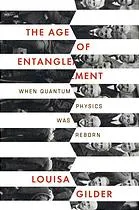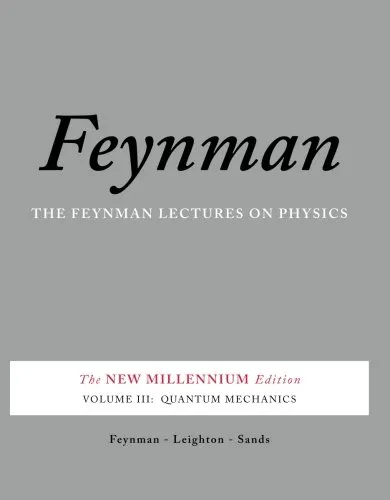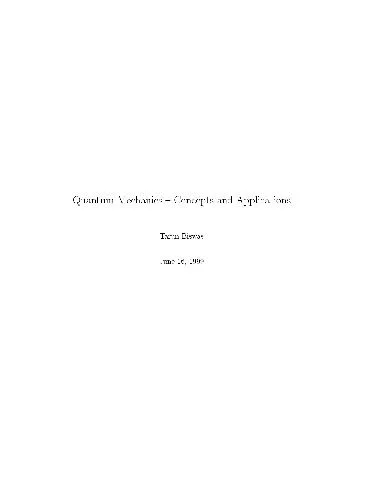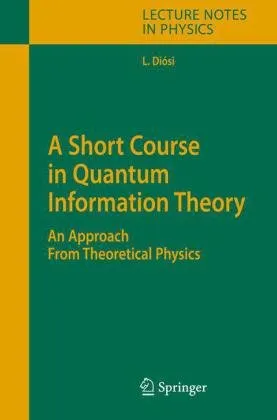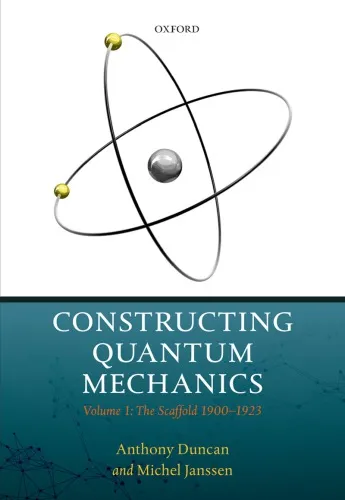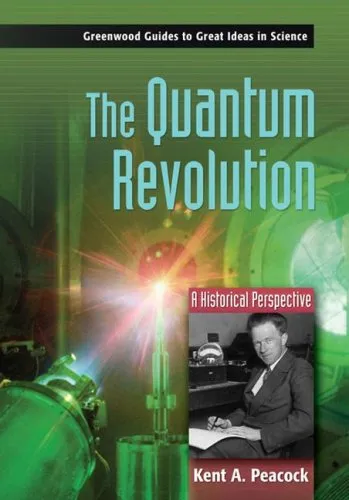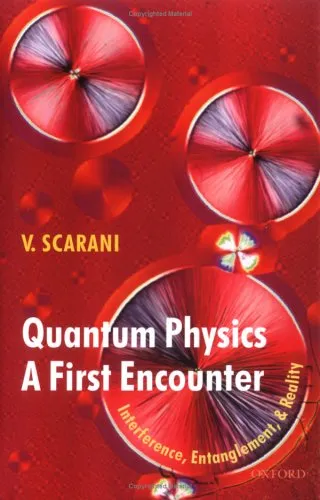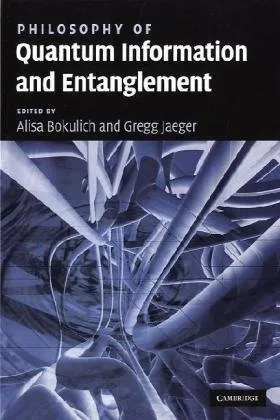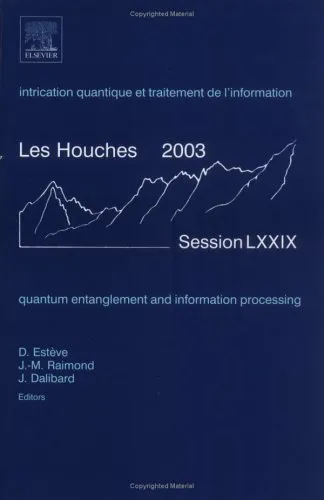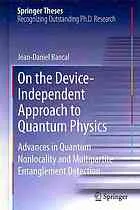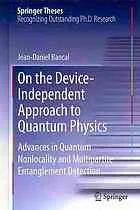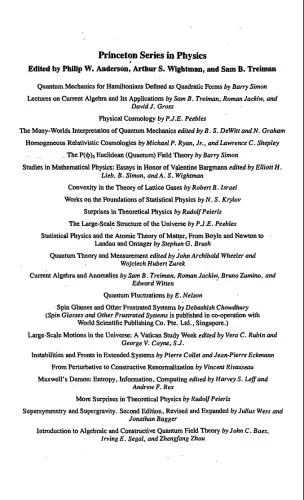The age of entanglement : when quantum physics was reborn
4.4
بر اساس نظر کاربران

شما میتونید سوالاتتون در باره کتاب رو از هوش مصنوعیش بعد از ورود بپرسید
هر دانلود یا پرسش از هوش مصنوعی 2 امتیاز لازم دارد، برای بدست آوردن امتیاز رایگان، به صفحه ی راهنمای امتیازات سر بزنید و یک سری کار ارزشمند انجام بدینکتاب های مرتبط:
معرفی کتاب "The Age of Entanglement: When Quantum Physics Was Reborn"
کتاب The Age of Entanglement اثر لوئیزا گیلدر یکی از مهمترین آثار در حوزه تاریخ علم فیزیک است که به بررسی مفهوم شگفتانگیز "Entanglement" یا به همتنیدگی کوانتومی میپردازد. این کتاب درخشان با ترکیب دیدگاههای تاریخی، گفتگوهای علمی و تفکرات نو، داستان شکلگیری و تحول نظریههای کوانتومی را روایت میکند.
خلاصهای از کتاب
کتاب The Age of Entanglement سفری است به آغاز قرن بیستم، زمانی که فیزیکدانانی مانند آلبرت اینشتین، نیلز بور و اروین شرودینگر بر سر فهم جدیدی از جهان تلاش میکردند. نویسنده به شیوهای داستانی وارد گفتگوهای میان دانشمندانی میشود که بر مفهوم Entanglement تأثیر گذاشتند. این مفهوم ابتدا از سوی اینشتین به عنوان یک ویژگی غیرواقعی رد شد، اما بعدها توسط جان بل و دیگر پژوهشگران به عنوان پایهای اساسی برای فیزیک کوانتوم به اثبات رسید.
این کتاب همچنین به نقش افراد کلیدی مانند جان بل، دیوید بوهم و ریچارد فاینمن در پیشرفت این علم میپردازد. روایتها از آزمایشهای اولیه تا پیروزیهای مدرن کوانتوم، خواننده را به عمق مباحث میبرد.
نکات کلیدی کتاب
- Entanglement فقط یک مفهوم نظری نیست؛ بلکه اساس فیزیک کوانتومی مدرن است.
- گفتگوهای میان افراد تأثیرگذار (مانند اینشتین و بوهر) بینشی عمیقتر درباره مشکلات و پتانسیلهای علم ارائه میدهند.
- موضوعاتی مانند آزمایشهای Bell، اهمیت مکانیسمهای احتمالی، و فلسفه علم بررسی شدهاند.
- روابط انسانی بین فیزیکدانان در پیشرفت علم نقش بسزایی ایفا میکند.
جملات معروف از کتاب
"Science is not just a collection of facts or theories filed neatly away."
- Louisa Gilder
"Entanglement is the peculiar magic of quantum mechanics that makes even the strangest phenomenon real."
- Louisa Gilder
چرا این کتاب مهم است؟
کتاب The Age of Entanglement نه تنها برای دانشجویانی که به فیزیک علاقه دارند، بلکه برای تمامی کسانی که به علم، تاریخ، و فلسفه فکر میکنند، اثری الهامبخش است. با بررسی عمیق جریانهای علمی و مفهومی که در نهایت به تشکیل فناوریهای مدرنی مانند Quantum Computing انجامید، این کتاب پلی قدرتمند بین گذشته و آینده علم برقرار میکند.
علاوه بر این، نویسنده به کمک استعداد نویسندگیاش، قابلیت فهم مسائل پیچیده را برای خوانندگان عام فراهم کرده است. این کتاب یکی از بهترین منابع برای شناخت جنبه انسانی و فلسفی فیزیک کوانتوم به شمار میآید.
Introduction to "The Age of Entanglement: When Quantum Physics Was Reborn"
"The Age of Entanglement: When Quantum Physics Was Reborn" is an enthralling journey through the history of quantum physics, skillfully written to bring a complex and revolutionary scientific field to life. Authored by Louisa Gilder, this book delves into the notion of quantum entanglement—a concept that baffled and intrigued some of the greatest minds of the 20th century. It masterfully weaves history, science, and human drama into a compelling narrative that engages both experts and curious readers alike. Gilder showcases how thought experiments, personal correspondence, and groundbreaking discoveries contributed to our current understanding of the quantum world.
With its unique blend of historical retellings and lively dialogue, the book provides a fresh perspective on the history of quantum mechanics. It invites readers to witness the debates, triumphs, and existential puzzles that defined the story of quantum entanglement, making it clear why this topic remains at the heart of modern physics. Below, we’ll explore a detailed summary of the book, share key takeaways, uncover some unforgettable quotes, and reflect on why this fascinating book matters.
Detailed Summary of the Book
"The Age of Entanglement" is divided into chapters that guide the reader through decades of intellectual exploration. Starting with the early 20th century, it sets the stage by describing the initial development of quantum mechanics, a branch of physics that shatters our classical understanding of the universe. At the center of this narrative is quantum entanglement—a bizarre phenomenon predicted by quantum theory in which the properties of particles become interconnected, regardless of the distance separating them.
Louisa Gilder brings this dense subject to life by imaginatively reconstructing dialogues between legendary scientists, such as Albert Einstein, Niels Bohr, Erwin Schrödinger, and John Bell. The book takes readers to pivotal moments in history, including the 1935 Einstein-Podolsky-Rosen (EPR) paper which questioned the completeness of quantum mechanics, and Schrödinger’s introduction of the term "entanglement." Gilder also gives prominence to lesser-known yet profoundly important physicists like David Bohm and Claude Shannon, who helped shape the conversation around quantum theory and its implications.
As the story progresses, we move from theoretical quandaries to experimental breakthroughs. The book explores how pivotal experiments in the late 20th century, such as those conducted by Alain Aspect, validated the spooky reality of entanglement. It also delves deeply into the philosophical dimensions of quantum physics, from questions of locality and determinism to its implications for our understanding of reality itself. Through vivid storytelling and accessible explanations, Gilder makes it possible for readers to appreciate not just the science, but the human struggle and collaboration that fueled quantum advancements.
Key Takeaways
- Quantum entanglement challenges our conventional understanding of space, time, and causality.
- Scientific progress is driven not just by equations, but also by debates, curiosity, and collaboration among scientists.
- While initially dismissed as a theoretical oddity, entanglement has profound implications for modern technologies like quantum computing and cryptography.
- The book emphasizes the importance of questioning and revising scientific paradigms as new evidence emerges.
- It highlights the human element in scientific discovery—the rivalries, friendships, and persistence of the physicists involved.
Famous Quotes from the Book
"Entanglement is not one, but rather the characteristic trait of quantum mechanics—the one that enforces its entire departure from classical lines of thought." — Erwin Schrödinger
"God does not play dice with the universe." — Albert Einstein
"The reality that quantum theory describes is not one that we humans are intuitively equipped to understand—it is, as Bohr said, 'un-humanizable'." — Louisa Gilder
Why This Book Matters
"The Age of Entanglement" isn’t just a book about physics; it’s a book about the process of discovery and the evolution of human thought. It captures the revolutionary spirit of quantum mechanics while making it relatable to a wide audience. Gilder crucially emphasizes that science is a human and historical endeavor, not just a collection of cold, hard facts. This makes the book meaningful to anyone with an interest in how ideas shape the way we perceive the world.
At a time when quantum technologies are rapidly advancing, understanding the history of quantum physics and the concept of entanglement is more important than ever. Gilder’s approach cultivates awe and curiosity, inspiring readers to think beyond the confines of classical reasoning. By blending science, history, and philosophy, "The Age of Entanglement" ensures its place as a touchstone for both laypeople and experts who wish to explore the layers of quantum reality.
دانلود رایگان مستقیم
شما میتونید سوالاتتون در باره کتاب رو از هوش مصنوعیش بعد از ورود بپرسید
دسترسی به کتابها از طریق پلتفرمهای قانونی و کتابخانههای عمومی نه تنها از حقوق نویسندگان و ناشران حمایت میکند، بلکه به پایداری فرهنگ کتابخوانی نیز کمک میرساند. پیش از دانلود، لحظهای به بررسی این گزینهها فکر کنید.
این کتاب رو در پلتفرم های دیگه ببینید
WorldCat به شما کمک میکنه تا کتاب ها رو در کتابخانه های سراسر دنیا پیدا کنید
امتیازها، نظرات تخصصی و صحبت ها درباره کتاب را در Goodreads ببینید
کتابهای کمیاب یا دست دوم را در AbeBooks پیدا کنید و بخرید
